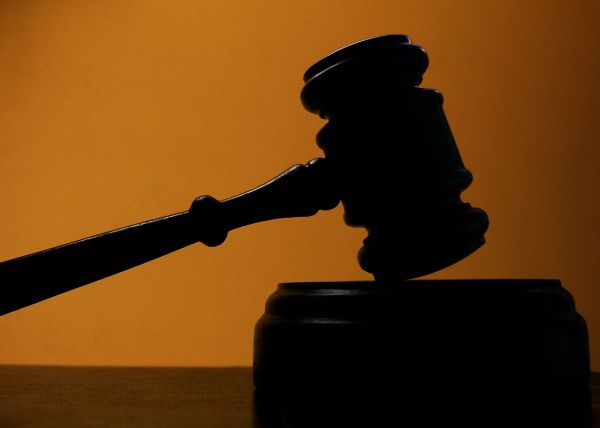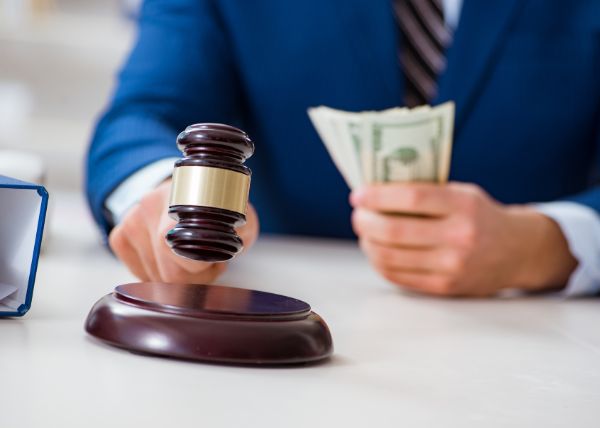
Call Now For A Free Consultation:

Call Now For A Free Consultation:

Have you ever wondered how much it would cost to sue the police? It's not uncommon for individuals to consider legal action against law enforcement officers for various reasons. However, the financial aspect of taking legal action can be a significant deterrent. At Justin Palmer Law Group, we handle cases involving police misconduct and can help individuals navigate the legal process. Understanding the costs associated with suing the police is crucial for anyone considering taking legal action.
Yes, you can sue the police in California if you believe your civil rights have been violated. Law enforcement officers, like all government officials, are bound by the Constitution and must uphold individuals' rights guaranteed under the law. If a police officer or department engages in misconduct or violates your constitutional rights, you have the right to seek legal recourse.
There are various situations in which you may have grounds to sue the police in California, including:
It’s essential to understand that police officers are typically granted qualified immunity, which shields them from personal liability for actions taken in the course of their duties, as long as those actions do not violate clearly established constitutional rights. However, this immunity is not absolute and does not protect officers from liability for egregious misconduct or violations of clearly established law.
Suing the police can be a complex and challenging process, requiring a thorough understanding of federal and state laws, as well as the ability to navigate the legal system effectively. It’s crucial to consult with an experienced civil rights attorney who specializes in police misconduct cases. A knowledgeable attorney can assess the merits of your case, gather evidence, navigate procedural hurdles, and advocate for your rights in court.
At Justin Palmer Law Group, we are dedicated to protecting the civil rights of individuals throughout California. Contact us today for a free consultation to discuss your case and learn how we can help you seek justice.

One of the most pressing concerns for individuals considering legal action against the police is the cost involved. It's natural to worry about the financial burden of pursuing a lawsuit, especially when already dealing with the aftermath of civil rights violations. Here's a breakdown of the potential costs associated with suing the police and how you can afford legal representation:
The primary expense in a lawsuit against the police is typically attorney fees. Civil rights attorneys who specialize in police misconduct cases often work on a contingency fee basis. This means that you don't pay any upfront fees, and your attorney only gets paid if they successfully recover compensation on your behalf. The attorney's fee is typically calculated as a percentage of the settlement or judgment obtained.
In addition to attorney fees, there may be litigation costs associated with your case. These costs can include filing fees, court reporter fees, expert witness fees, and costs for obtaining medical records or other evidence. While some law firms may require clients to cover these costs upfront, others may advance these expenses on your behalf and deduct them from any settlement or judgment obtained.
If you win your case against the police, you may be entitled to recover attorney fees and litigation costs from the defendant. This means that the police department or government entity responsible for the misconduct may be required to reimburse you for the expenses incurred in pursuing your lawsuit. This can help offset the financial burden of litigation and ensure that you are not left out of pocket.
In some cases, individuals who cannot afford the costs of hiring a private attorney may be eligible for legal aid or pro bono representation. Legal aid organizations and nonprofit law firms may offer free or low-cost legal services to individuals with limited financial means. Additionally, many civil rights attorneys are committed to providing pro bono assistance to those who have been victims of police misconduct.
While the thought of suing the police may seem daunting, it's essential to remember that there are options available to help you afford legal representation. Working with an experienced civil rights attorney who offers contingency fee arrangements can help alleviate financial stress and ensure that you have skilled advocacy on your side.
Contingency fee arrangements, also known as "no win no fee" agreements, are a common practice in civil rights cases against the police. This fee structure allows individuals to pursue legal action without having to worry about paying upfront costs. Instead, your attorney will only collect a fee if they secure a settlement or judgment on your behalf. This can help alleviate financial stress and ensure that you have access to skilled legal representation, regardless of your financial situation.
One common concern for individuals considering a lawsuit against the police is the cost. Fortunately, many civil rights attorneys, including those at Justin Palmer Law Group, handle these cases on a contingency fee basis. This means that you don’t pay any upfront fees, and your attorney only collects a fee if they successfully recover compensation on your behalf. Additionally, if you win your case, you may be entitled to recover attorney’s fees and litigation costs from the defendant.
At Justin Palmer Law Group, we understand the complexities and challenges individuals face when pursuing legal action against law enforcement for misconduct. Here's how our experienced police misconduct lawyers can help you navigate this difficult situation and seek justice:
Our attorneys have in-depth knowledge of federal and state laws governing police conduct and civil rights. We can provide you with expert legal guidance and help you understand your rights under the law. From the initial consultation to the resolution of your case, we will be by your side, advocating for your best interests every step of the way.
We will conduct a thorough investigation into the circumstances surrounding the alleged police misconduct. This may involve gathering witness statements, obtaining video footage, reviewing police reports, and consulting with experts to build a strong case on your behalf. We leave no stone unturned in our quest for the truth and justice.
Our attorneys are skilled negotiators and litigators who will develop a strategic legal approach tailored to the specifics of your case. Whether through negotiation, mediation, or litigation, we will vigorously advocate for your rights and pursue the best possible outcome. We are not afraid to take on powerful adversaries, including law enforcement agencies, to hold them accountable for their actions.
We understand the emotional toll that police misconduct can take on individuals and their families. Our compassionate attorneys will provide you with the support and guidance you need during this challenging time. We will protect your rights at every stage of the legal process and ensure that you are treated with dignity and respect throughout.
Our goal is to secure maximum compensation for the harm you have suffered due to police misconduct. This may include compensation for medical expenses, lost wages, pain and suffering, and punitive damages where appropriate. We will fight tirelessly to ensure that you receive the full and fair compensation you deserve.
Suing the police is a serious legal action that individuals may pursue when their civil rights have been violated. Here are some common reasons people may file lawsuits against law enforcement:
One of the most frequent reasons for suing the police is excessive use of force. This occurs when an officer employs more force than necessary or uses unreasonable tactics during an arrest or confrontation, resulting in injury or death. Examples include unjustified shootings, beatings, or the use of tasers or pepper spray when not warranted.
Individuals may sue the police for false arrest or imprisonment if they were unlawfully detained or arrested without probable cause or a valid warrant. This can include cases where officers make arrests based on mistaken identity, fabricate evidence, or use coercion to obtain confessions.
Malicious prosecution occurs when law enforcement officials wrongfully initiate or continue criminal proceedings against an individual without probable cause and with malicious intent. Victims of malicious prosecution may suffer significant emotional distress, financial hardship, and damage to their reputation as a result of baseless criminal charges.
The Fourth Amendment protects individuals from unreasonable searches and seizures by law enforcement. If police conduct a search of your person, home, or vehicle without a warrant or probable cause, you may have grounds to sue for illegal search and seizure. This can include cases where evidence is obtained through coerced consent or planted by officers.
Law enforcement officers are required to uphold individuals' First Amendment rights to free speech and peaceful assembly. If police unlawfully interfere with your right to protest, express dissenting opinions, or engage in political activities, you may have grounds for a lawsuit. This can include cases of unwarranted arrests, use of excessive force against protesters, or suppression of protected speech.
Police misconduct may also involve discriminatory practices targeting individuals based on their race, ethnicity, gender, religion, sexual orientation, or other protected characteristics. Racial profiling, discriminatory stops and searches, and biased policing practices are all examples of conduct that can lead to civil rights violations and lawsuits against law enforcement.
If you believe you have a police misconduct case, don't hesitate to contact Justin Palmer Law Group today. We offer free consultations and we can discuss your case so you are informed on next steps.
Experiencing police misconduct or brutality can be traumatic and overwhelming. If you find yourself in this situation, it's crucial to know how to protect your rights and seek justice. Here are the steps you should take if you have experienced police misconduct or brutality:
Experiencing police misconduct or brutality is a serious matter that requires prompt action and careful navigation of the legal system. By following these steps and seeking guidance from an experienced civil rights attorney, you can protect your rights, seek accountability for misconduct, and work towards justice.
If you have experienced police misconduct or brutality and are seeking justice, consider reaching out to attorney Justin Palmer. With years of experience in civil rights law and a dedication to fighting for justice on behalf of his clients, he can provide the legal representation and advocacy you need. By working with a skilled attorney like Justin Palmer, you can pursue accountability for police misconduct, seek compensation for any damages or injuries you have suffered, and work towards systemic change to prevent future incidents of police misconduct. Contact our office today to schedule a consultation and start pursuing justice for yourself and your community.
Attorney Advertising | Prior results do not guarantee a similar outcome. The information on this website is for general information purposes only. Nothing on this site should be taken as legal advice for any individual case or situation. This information is not intended to create, and receipt or viewing does not constitute, an attorney-client relationship. This site is protected by reCAPTCHA and the Google Privacy Policy and Terms of Service apply.